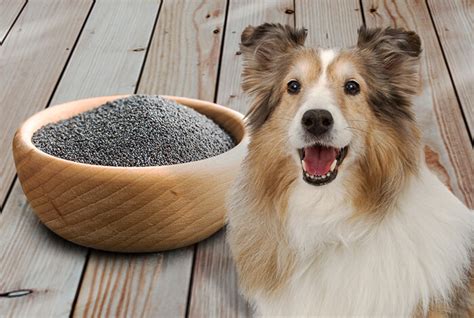As a pet owner, it's essential to be aware of the potential risks associated with common food items, including poppy seeds. While poppy seeds may seem harmless, they can pose a threat to your furry friend's health. In this article, we'll delve into the world of poppy seeds and dogs, exploring the potential risks and providing guidance on how to keep your canine companion safe.
What are Poppy Seeds?
Poppy seeds come from the poppy plant (Papaver somniferum), which is also the source of the opium alkaloid. While poppy seeds themselves don't contain significant amounts of opiates, they can still cause problems for dogs.
Can Dogs Have Poppy Seeds Safely?
The short answer is no. While an occasional exposure to a small amount of poppy seeds might not harm your dog, regular or large-scale consumption can lead to adverse effects.
Risks Associated with Poppy Seeds in Dogs
- Opiate Toxicity: Poppy seeds can contain small amounts of opiates, which can accumulate in your dog's system and cause toxicity. Opiate toxicity can lead to symptoms such as:
- Lethargy
- Confusion
- Disorientation
- Loss of appetite
- Vomiting
- Diarrhea
- Gastrointestinal Issues: Poppy seeds can cause stomach upset, including vomiting and diarrhea, due to their high fiber content and potential allergenic properties.
- Allergic Reactions: Some dogs may be allergic to poppy seeds, which can trigger allergic reactions, such as itching, scratching, and skin irritation.
How to Keep Your Dog Safe Around Poppy Seeds
To ensure your dog's safety, follow these guidelines:
- Avoid Feeding Poppy Seeds: Refrain from giving your dog poppy seeds as treats or adding them to their meals.
- Watch for Cross-Contamination: If you're baking or cooking with poppy seeds, make sure to clean your kitchen thoroughly to avoid cross-contamination.
- Monitor Your Dog's Behavior: If you suspect your dog has ingested poppy seeds, monitor their behavior closely for any signs of toxicity or gastrointestinal issues.
- Seek Veterinary Attention: If your dog shows any symptoms of opiate toxicity or gastrointestinal issues, seek veterinary attention immediately.
What to Do If Your Dog Ingests Poppy Seeds
If you suspect your dog has ingested poppy seeds, follow these steps:
- Contact Your Veterinarian: Reach out to your veterinarian for advice on how to proceed.
- Provide Information: Share information about the amount and type of poppy seeds consumed, as well as the time frame in which they were ingested.
- Follow Veterinary Instructions: Follow your veterinarian's instructions for treatment, which may include inducing vomiting, administering activated charcoal, or providing supportive care.
Alternatives to Poppy Seeds for Dogs
If you're looking for healthy alternatives to poppy seeds for your dog, consider the following options:
- Pumpkin Seeds: Pumpkin seeds are a nutritious and safe alternative to poppy seeds. They're rich in protein, fiber, and healthy fats.
- Sunflower Seeds: Sunflower seeds are another healthy option for dogs. They're rich in vitamins, minerals, and healthy fats.
- Carrots: Carrots are a crunchy and healthy snack for dogs. They're rich in fiber, vitamins, and minerals.
Gallery of Dog-Friendly Alternatives to Poppy Seeds





FAQs
Can dogs eat poppy seed bread?
+No, it's not recommended to feed your dog poppy seed bread. While an occasional bite might not harm your dog, regular consumption can lead to adverse effects.
What are the symptoms of poppy seed toxicity in dogs?
+Symptoms of poppy seed toxicity in dogs include lethargy, confusion, disorientation, loss of appetite, vomiting, and diarrhea.
Can I give my dog pumpkin seeds as a treat?
+Yes, pumpkin seeds are a nutritious and safe alternative to poppy seeds. They're rich in protein, fiber, and healthy fats.
In conclusion, while poppy seeds may seem harmless, they can pose a risk to your dog's health. By understanding the potential risks and taking steps to keep your dog safe, you can ensure a healthy and happy life for your furry friend. Remember to always consult with your veterinarian if you have any concerns about your dog's health or diet.
